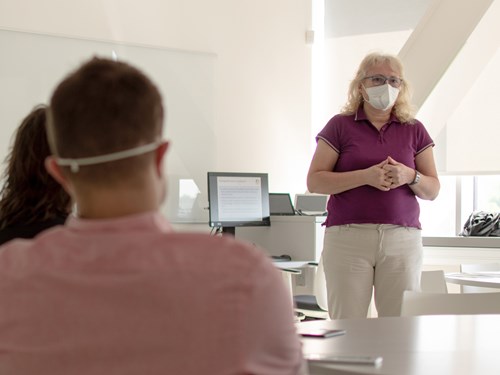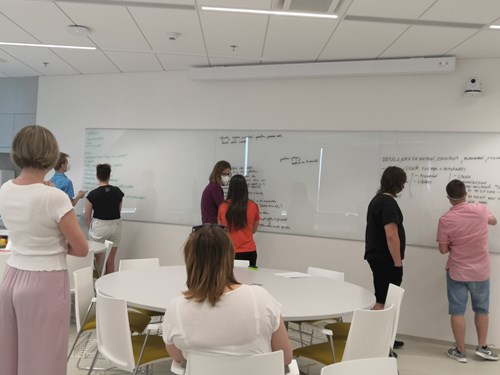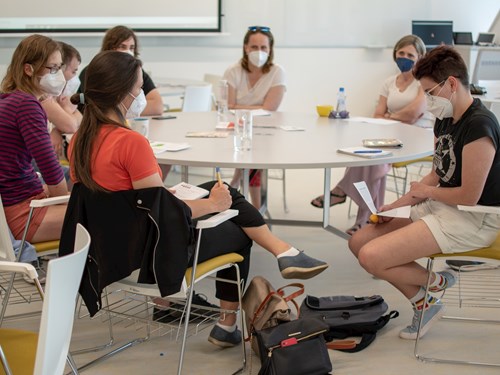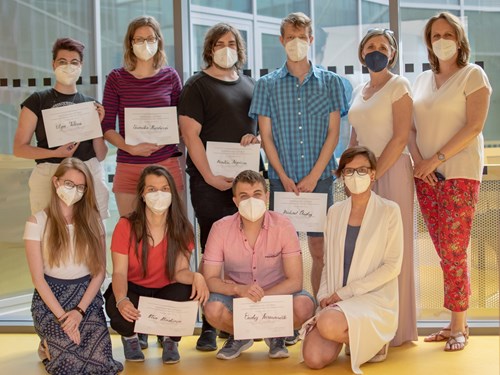The workshop itself has a six-year tradition at Charles University in Hradec Kralove. It focuses on domestic violence, its forms and manifestations. Future doctors can learn to recognize them, proceed within the law and particularly communicate with the victims and provide help. The course is divided into a theoretical and a practical part, in which the participants can try to communicate with a patient and test their newly acquired knowledge in practice.
The lecture series began on Friday evening with a presentation of case studies made by a representative of the Czech police force and an introduction to legal issues. On Saturday morning, the course continued with the topics of psychology of trauma and post-traumatic disorder and a lecture given by the probation and mediation service which introduced our participants into the psychological state of victims and their inner feelings. This was followed by a block of lectures given by Bily kruh bezpeci explaining how they help the victims of domestic violence, what services they provide to health professionals and what procedures they recommend in various situations. The participants also received a lot of practical advice from healthcare professionals, i.e. how to communicate with a patient suspect of being a victim of domestic violence, what contacts has to be given to such patient and what should be known during the preparation of documentation so that it can serve as evidence in a prospective legal proceeding.
On the last day of the workshop, lecturers from the SPIS specified the position of a crisis interventionist and a peer in hospital - how they work and what issues can they deal with. Another short lecture was focused on the specifics of trauma in children. It was followed by an extensive practical block when the participants practically tested and broadened the knowledge they acquired in the last two days in the form of roleplay and consultations. The practical block focused on mastering the basic tools in communication and work with victims of domestic violence, basics of crisis intervention and regulation of emotions, the concept of trauma and self-experiential exercises supplemented by knowledge from neuropsychotherapy. At the end, each participant received a diploma of completion of the course.








